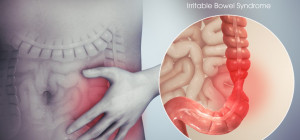 Juicing and cold-pressing have undoubtedly claimed their spot in the health and wellness landscape, steadily gaining popularity due to their ability to flood the body with lots of nutrition in a form that’s easily digestible by the liver.
Juicing and cold-pressing have undoubtedly claimed their spot in the health and wellness landscape, steadily gaining popularity due to their ability to flood the body with lots of nutrition in a form that’s easily digestible by the liver.
A recent Forbes article reminds us that nutrients in raw fruits, vegetables and herbs are retained when we don’t heat or cook them. The same logic holds true for marijuana.
Marijuana is a product of the cannabis sativa plant and the active compounds from this plant are collectively referred to as cannabinoids. When marijuana buds or leaves are ingested raw they release the cannabinoids THCA and CBDA, the uncooked versions of THC and CBD, and bring a host of health benefits for your liver along with them!
While smoking marijuana can cause lung complications and cardiovascular problems, juicing marijuana is an ideal way to reap the nutritional benefits and spare your lungs.
Marijuana leaves and buds in their raw form contain an abundance of THCA and CBDA. CBDA has multiple health benefits such as being anti-inflammatory and cancer preventative. It’s these properties that make juicing marijuana an attractive way to prevent and reverse a long list of chronic illnesses, including a variety of liver diseases.
Preferring it Raw
Most people who have experience with marijuana know its psychoactive effects as inducing a euphoric or relaxed state following the act of smoking or eating edibles. That feeling comes from the THC (Tetrahydrocannabinols), the principal psychoactive chemical in marijuana, and is the byproduct of cooking or heating THCA.
THCA and the raw version of CDB, CBDA, both bring anti-inflammatory properties and health benefits if left uncooked and incorporated into your juicing routine. They also don’t come with the psychoactive “high” feeling, which is a huge plus when the goal of juicing is often to give your body a boost of nutrients that get your day started right – not inhibit you or make feel stoned.
Another benefit of juicing your marijuana is the yield of THCA and CBDA raw is so much more potent and easily extractable than from smoking THC or CBD. The FDA has approved a tolerable CBD dose of 600 mg/day as a new investigative drug, which is nowhere near attainable through the smoking of marijuana. In the psychoactive versions, 10mg of CBD or THC is considered a high yield, but doses of hundreds of milligrams are possible when extracted raw through juicing.
Science Shows…
- In a recent study that examined the effects of a variety of cannabinoids on Crohn’s disease and inflammatory bowel diseases, it was found that “anti-inflammatory activity of Cannabis extracts on colon epithelial cells derives from a fraction of the extract that contains THCA, and is mediated, at least partially, via GPR55 receptor.”
If you’re not a biochemist, this basically means that in order to reap the anti-inflammatory effects of cannabis extracts, THCA (and CBDA) should be used rather than the cooked/heated CBD or THC.
- Another study by Liver International found that in people suffering from alcohol-related liver diseases, those “who additionally use cannabis (dependent and non-dependent cannabis use) showed significantly lower odds of developing AS (alcoholic steatosis), AH (steatohepatitis), AC (cirrhosis), and HCC (hepatocellular carcinoma, or liver cancer).”
So, in alcohol-related liver disease, the findings suggest cannabis use is correlated with reduced incidence of liver disease in alcoholics.
Alcoholism wreaks havoc on your liver, inhibiting its ability to process fat and sugar and, if left untreated, can lead to chronic liver disease and cirrhosis.
If ingesting marijuana decreases incidents of liver disease in alcoholics, it’s not crazy to think that the effects of incorporating THCA into your juicing routine could only help fortify and protect the liver in non-alcoholics as well.
More and more studies are telling us the same thing. Marijuana, and the cannabinoids they contain, are presenting a novel and promising approach to treating liver inflammation and other autoimmune disorders.
Liver Issues, Nausea and Marijuana
Nausea and loss of appetite is a common symptom of:
- fatty liver disease
- hepatitis B and C
- nonalcoholic fatty liver disease (NAFLD)
- nonalcoholic steatohepatitis (NASH)
This symptom makes it difficult to treat liver conditions with dietary changes when nausea makes it hard to keep food down or introduce new foods that could alleviate liver inflammation. Luckily, one of the benefits of THCA is stimulating appetite.
Working marijuana and THCA into your juicing routine in the morning could set you up to have a healthy appetite later in the day, especially if you’re already suffering from loss of appetite or nausea due to liver illness.
Access to Marijuana
Access to marijuana can be an issue depending on where you live. If you’re in one of the 10+ states with recreational marijuana, finding marijuana to juice every day may be as easy as finding the right local dispensary. However, if you’re in one of the 23 states currently offering medical marijuana, you’ll need to consult a special physician and explain what ails you that warrants the granting of a license to use medical marijuana.
Quality Counts
Along those lines, if you’re lucky enough to have access, you need to make sure you’re getting the right kind of marijuana. You can’t just toss any old dried piece of marijuana into the blender and expect to reap the health rewards.
In order to juice properly, Medical Jane suggests only juicing “raw, freshly-picked and properly grown cannabis, taking extra caution to avoid any plant material that may have been exposed to pesticides or other microbiological contaminants.”
The same rules apply as if you were shopping for any leafy green in a grocery store. Fresher is better and don’t be surprised if your local dispensary doesn’t have access to a freshly picked marijuana leaf. Most juicers able to successfully incorporate marijuana legally into their juicing routines are becoming medical marijuana patients, which allows them to grow their own plants and fresh pick raw material.
Take Caution
For the rest of the country without access, marijuana seems to be a slow moving, but inevitable train. And while we’re sure there exist other less legal means of procuring marijuana if you live in a marijuana-free state, we strongly suggest against it for use in juicing, as you’ll never know if the plants you acquired were handled properly and are free of pesticides.
Don’t be discouraged. The green tide is coming and it won’t be long before access to juiceable marijuana increases dramatically and pre-packaged marijuana juice is available in abundance at the local grocery store.
SOURCES:
- https://www.forbes.com/sites/kristianastre/2018/07/26/yes-you-can-add-raw-cannabis-to-your-green-smoothie/#f5d579136bb3, Forbes, “Yes, You Can Add Raw Cannabis To Your Green Smoothie,” by Kristian Astre, Published on July 26, 2018, Retrieved on Dec 12, 2018
- https://benicepaper.com/cannabis-faq/importantacronyms, Nice Paper, “Why You’ll Keep Seeing These 5 Weed Acronyms,” published on June 19, 2018, Retrieved on Dec 12, 2018
- https://www.cancer.org/treatment/treatments-and-side-effects/complementary-and-alternative-medicine/marijuana-and-cancer.html, American Cancer Society, “Marijuana and Cancer,” Retrieved Dec 12, 2018
- https://www.ncbi.nlm.nih.gov/pmc/articles/PMC5627671/, Cannabis Cannabinoids Research, “Anti-Inflammatory Activity in Colon Models Is Derived from Δ9-Tetrahydrocannabinolic Acid That Interacts with Additional Compounds in Cannabis Extracts,” by Rameshprabu Nallathambi, Moran Mazuz, Aurel Ion, Gopinath Selvaraj, Smadar Weininger,1 Marcelo Fridlender,1 Ahmad Nasser,1 Oded Sagee,2 Puja Kumari, Diana Nemichenizer, Maayan Mendelovitz, Nave Firstein, Orly Hanin, Fred Konikoff, Yoram Kapulnik, Timna Naftali, and Hinanit Koltai, Retrieved on Dec 12, 2018
- https://www.ncbi.nlm.nih.gov/pubmed/29341392, Liver International, “Cannabis use is associated with reduced prevalence of progressive stages of alcoholic liver disease.” by Adejumo Ajayi, Adegbala, Adejumo, Alliu, Akinjero, Onyeakusi, Ojelabi, Bukong, Retrieved Dec 12, 2108
- https://www.ncbi.nlm.nih.gov/pmc/articles/PMC2828614/, Future Med Chem., “Cannabinoids as novel anti-inflammatory drugs,” by Prakash Nagarkatti, Published on Oct 1, 2009, Retrieved Dec 12, 2018
- https://www.medicaljane.com/category/cannabis-classroom/consuming-cannabis/juicing/#the-science-of-juicing-cannabis, Medical Jane, “Introduction to Juicing Cannabis,” Retrieved Dec 12, 2018







